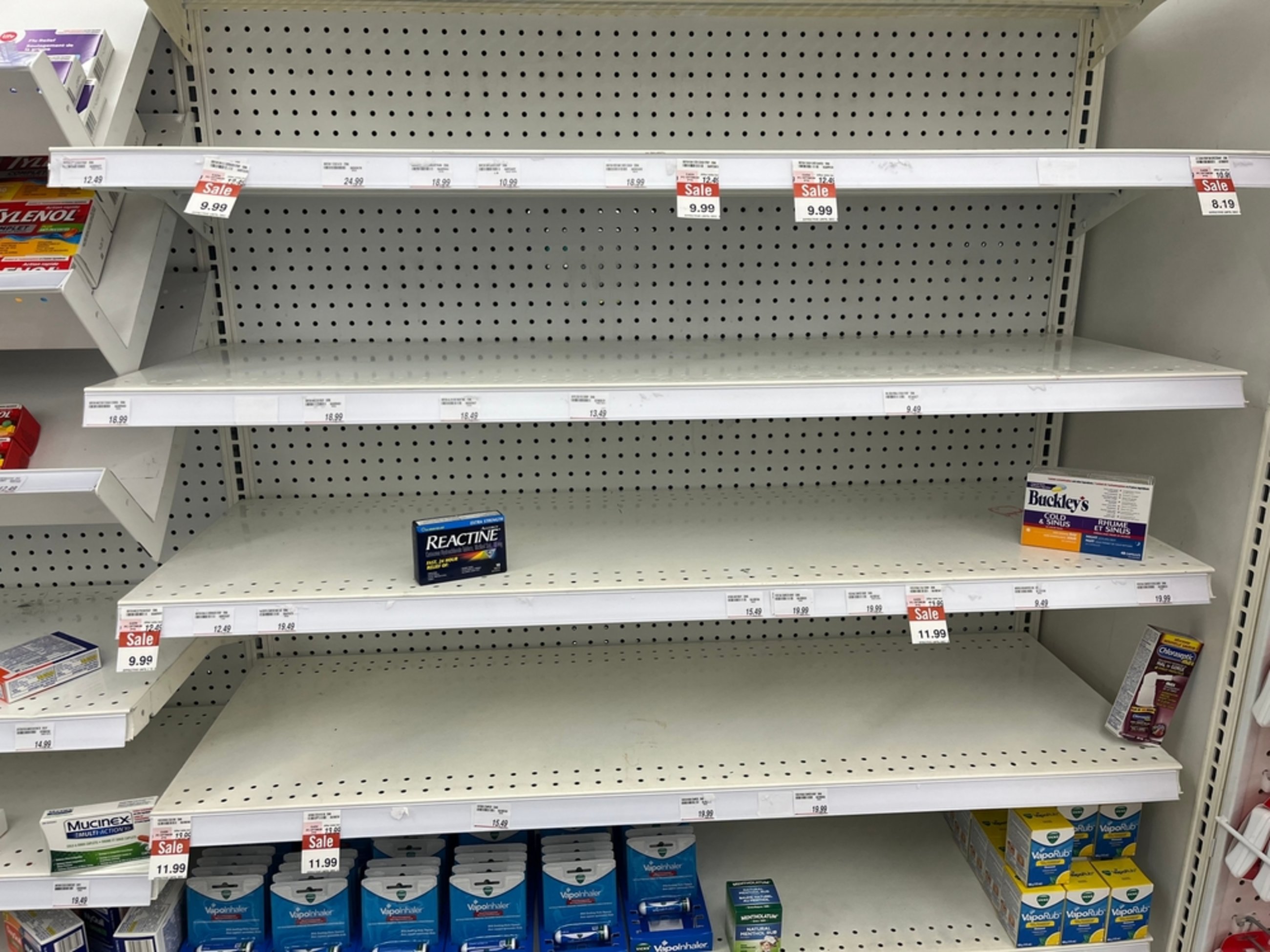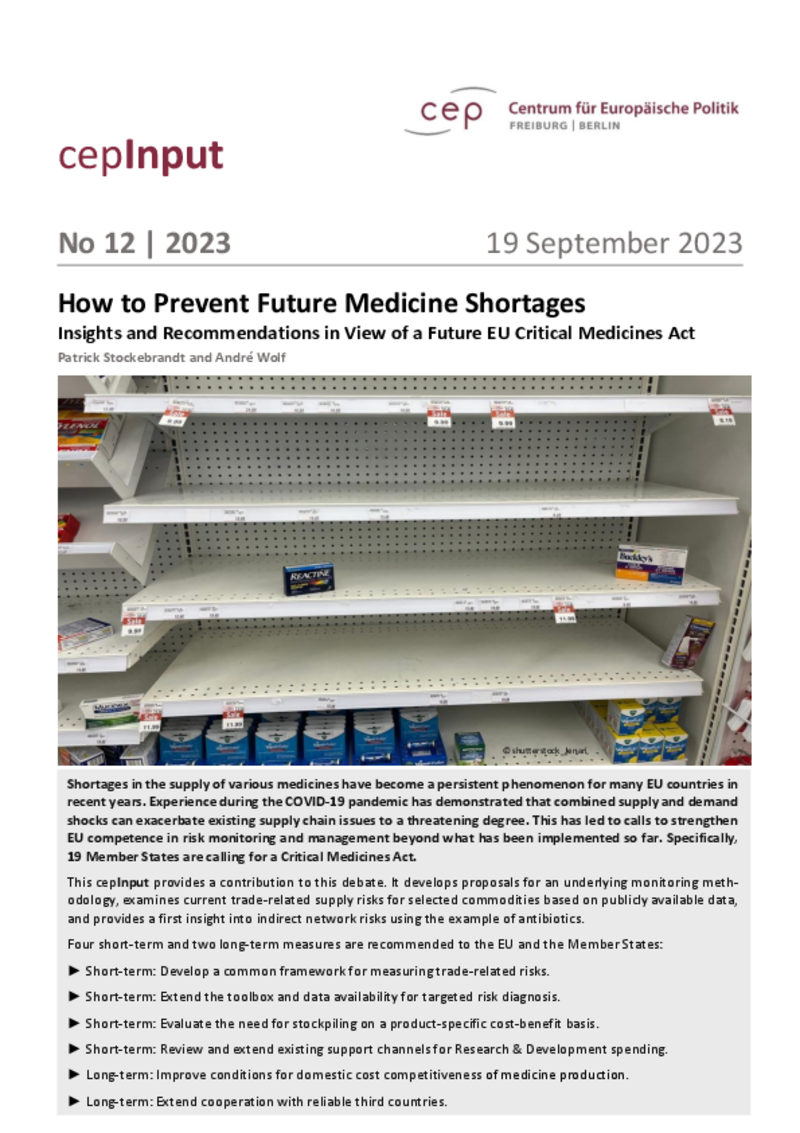
Consumer & Health
How to Prevent Future Medicine Shortages (cepInput)
cepInput
"The main problem is the EU's dependence on imports from a few producers in a few regions. We therefore call for a law on critical medicines in view of the non-paper," says health expert Patrick Stockebrandt, who drew up the cep concept with economic expert André Wolf. "Especially for antibiotics, hormones and glycosides, we are seeing increased shortage risks. Europe is falling further behind the USA and Asia in innovation and production," Wolf warns.
Measuring shortage risks must become an integral part of EU-wide risk management, according to the cep scientists. The reporting on critical raw materials, taking into account the special features of the pharmaceutical markets, is considered to be a suitable model. The aim must also be to extend the risk analysis to markets outside the EU.
Based on a network analysis for five classes of antibiotics, cep identifies exemplary dependencies of the EU and develops an indicator for trade risks. The result: Between 2001 and 2021, the situation in four classes has deteriorated significantly compared to other regions. In order to increase the security of supply of critical medicines, cep proposes a three-pillar strategy - consisting of stockpiling, more targeted public R&D funding and measures to improve the competitiveness of the EU as a production location for medicines.
Download PDF
| How to Prevent Future Medicine Shortages (cepInput) (publ. 09.18.2023) | 3 MB | Download | |
 | |||



